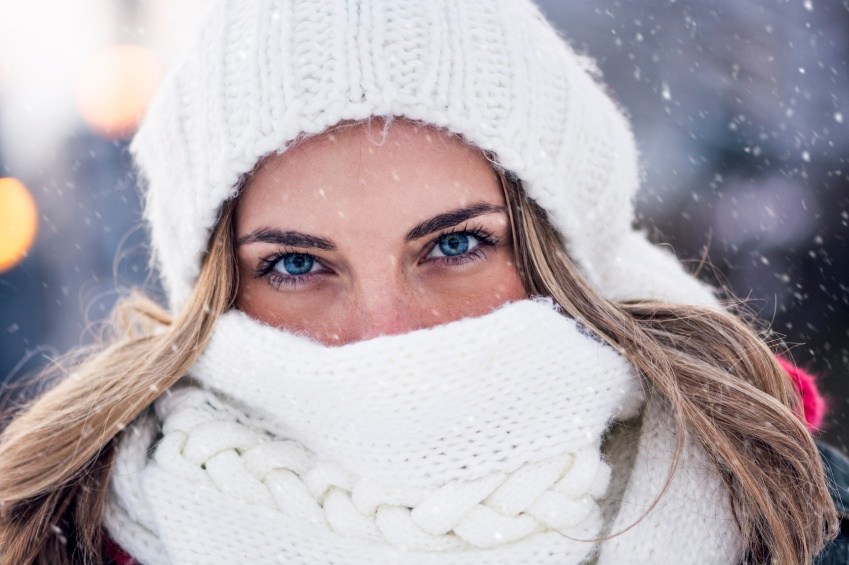
With outdoor temperature dropping significantly during winter, the air also cools down, resulting in less humidity compared to the rest of the year. During winter, cold winds blowing outside are dehydrating for our eyes as well as our skin, both of which need adequate moisture to stay healthy.
For our eyes, exposure to cold, dry air means losing essential moisture rapidly through the eye surface (which is comprised of 99% water), becoming irritated due to excessive dehydration.
One of the biggest issues your eyes can face during winter is the loss of moisture, but you can work around this problem through different ways, such as:
1: Regulating the Temperature Indoors: Dryness of the air can be a cause of concern in winter, especially if you already have dry eyes. The issue can escalate further due to high temperatures people usually set indoors. So, turning down your central heating to a mild temperature can be the best thing for ensuring ample moisture retention in your eyes.
2: Blinking Excessively: Many people complain of a worsening dry eye condition when they read or use electronic devices. The reason can be quite simple; our blinking slows down when we engage in any activity requiring dedicated visual attention. One effective way to get around this problem is to blink more, so that our eyes continue to produce enough lubrication to form tears.
3: Using Humidifiers: Defying the need of heating systems in winter is not possible, but they also result in loss of moisture in the air, which can compromise the quality of indoor air. This boosts your probability of getting dry eyes. Under such circumstances, nothing can serve better than a humidifier, not hindering your indoor heating but still maintaining ample levels of moisture in the air to keep your eyes comfortable.
4: Not Lingering Around Heat Sources: In places and situations where heating is on without a humidifier, it’s better for people with dry eyes to distance themselves from heat sources like heaters and radiators.
5: Using Artificial Tears: In case your dry eyes continue to bother you despite following these tips, resort to a seasoned eye doctor who can examine your eyes in detail. Quite often, they also recommend artificial tears to help you with moistening your dry eyes. These artificial tears comprise of a specific combination of oil, mucus and water, which also helps manage rapid evaporation.
Regulating Your Diet
Visual functions and the elements constituting it, including your eyes, are designed to function effectively as a cohesive unit and diet is the fuel of this unit. For seamless performance of all body functions including your vision, it’s crucial to regulate your diet. Here is how:
6: Add Cold Water Fish to Your Diet: Cold water fish are packed with omega-3 based essential fatty acids, which are helpful in retaining moisture in your eyes. Making cold water fish a part of your winter diet will offer your eyes much needed lubrication to survive through the dehydrating winter season. Some popular cold water fish options include tuna, mackerel and halibut.
7: Hydrating Yourself is Key: One of the best ways to fight dry eyes during winter is to keep yourself appropriately hydrated. Experts recommend drinking at least 8 glasses of water every day to do so. Enough moisture in your eyes means fewer problems for them to run through the cold season.
Outdoor Eye Care in Winter
Quite astonishingly, many people seem to take eye care for granted when they are outdoors in winter. This is a big mistake, your eyes are quite vulnerable to harm and injury when you are out there in winter. Here’s how you should take care of your eyes in winter:
8: Resort to Quality Sunglasses: Only the sun is covered by the clouds during winter, not the UV rays it emits. Most of us tend to pay attention to protecting our eyes with a pair of sunglasses during summer, because we’re able to observe the sun and try to get protection from UV rays coming from it.
However, the sun still emits as much UV rays as ever and this time around, they can become even more harmful because the cover of snow that we see so much in the winter reflects the UV rays back, making them even more dangerous for our eyes.

